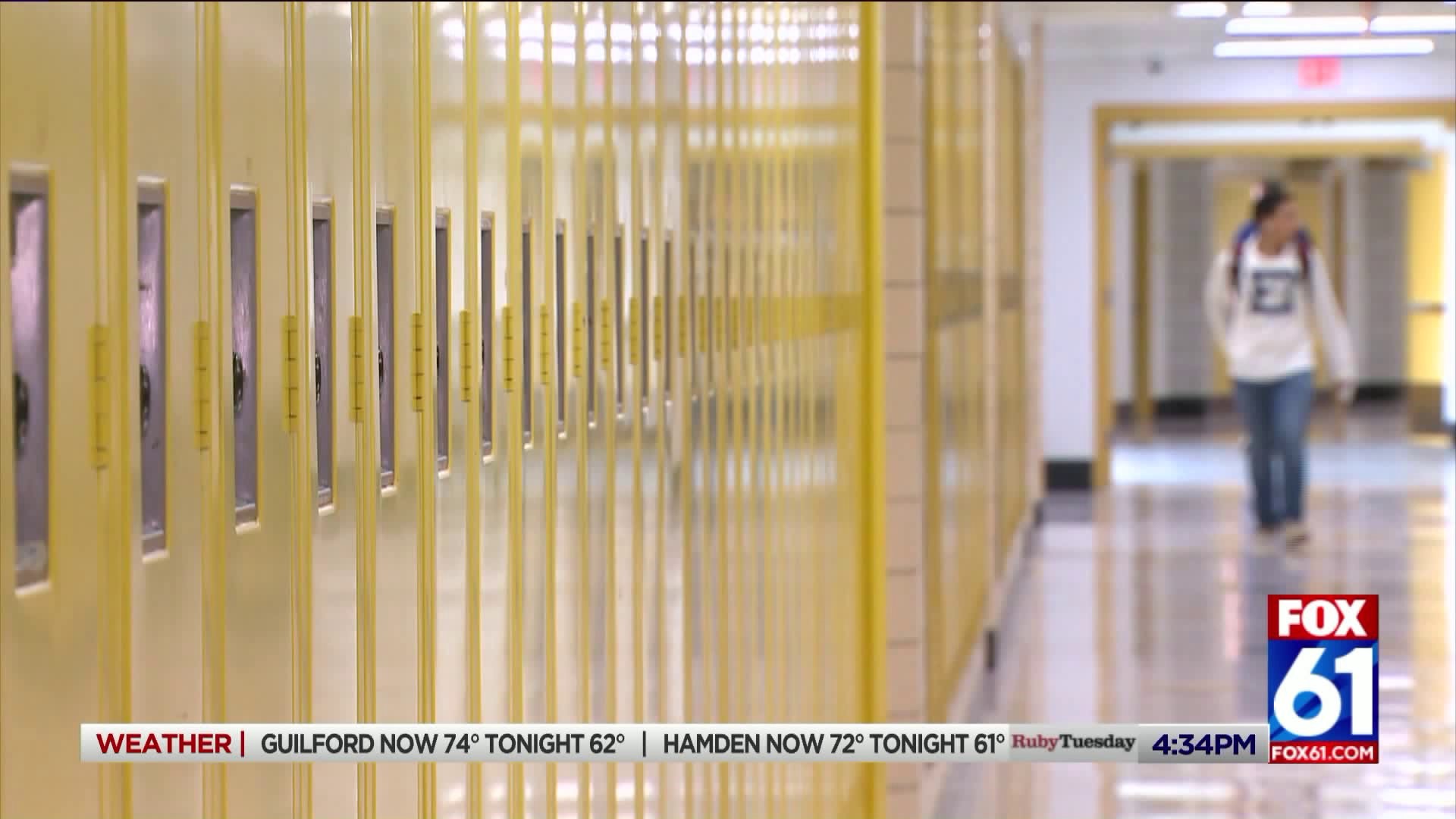MERIDEN -- Governor Lamont and the State’s Education Commissioner, Miguel Cardona, met with a panel of students to discuss improvements that could be made in our public schools.
The panel only lasted about an hour and a half, but it covered a lot of ground, including discussions on the state’s achievement gap, and regionalizing school districts.
“Know what your strengths are and, Connecticut, our strength has always been an amazing school system K-12 right through our university system and the best trained best educated workforce in the world,” says Lamont.
And while there are strengths in Connecticut’s school systems, there is much room for improvement.
“We’re going to put our heads together in the State of Connecticut to make sure we keep students at the center of the decisions we make, ensure viable, quality curriculum for all kids, and to ensure that we give teachers the support that they need,” says the state’s Education Commissioner, Miguel Cardona.
Governor Lamont and Commissioner Cardona discussed a myriad of education issues in the state in front of a panel of students and more than 70 educators. They discussed the state’s achievement gap. They also talked about the new Teacher Minority Recruitment Legislation passed at the beginning of this year.
“It’s really important that kids have folks they can identify with,” says Lamont.
Right now, 91% of Connecticut's teachers are white. Governor Lamont says this is already changing.
“Next year,” says Lamont. “We’re going to have more minority teachers, more male teachers in our school system starting next year.”
Students at the panel said they feel less prepared for their futures because of the lack of resources and diversity of classes available to them, especially in smaller towns.
“I feel like students aren’t being exposed to all of the careers out there,” says Olivia Runte, a senior at Portland High School. Her plan is to create a network of businesses where students can intern and job shadow in order to decide what they want to do in the future.
“They can gain that experience in a wide variety of fields so it can help them narrow down what they want to do,” says Runte.
She knows it can help narrow down options because shadowing her local dentist helped her realize that she could see herself in that role one day.
“Before it was like, ‘I don’t know if I could see myself doing this’, but then I was there all day and I got to see some of her patients and it was just really cool,” says Runte. “I know that if I do decide to do that, I could see myself doing that and I could see myself having a good time doing that too.”
Olivia says she feels stressed out about her senior year even though her path is more paved than other students paths may be. Governor Lamont says he is already working with businesses to make them a bigger presence in our schools.
“I don’t know about whether it has to be part of our schools curriculum or it’s just something we do, but I’d like to get the broader community involved in schools just for the reason you said, so kids have a greater exposure of what’s going on out there in the professional world,” says Lamont.
Governor Lamont says the solution to giving students more resources partly comes in saving money by consolidating resources in how schools are run.
“Healthcare, IT, school buses,” says Lamont. “Imagine if you bought this across 169 towns instead of just East Granby doing it by themselves. There’s a 20% savings right there.”
Governor Lamont says he’s not necessarily going to introduce legislation to regionalize schools, but that he is going to give towns incentive to do so.

